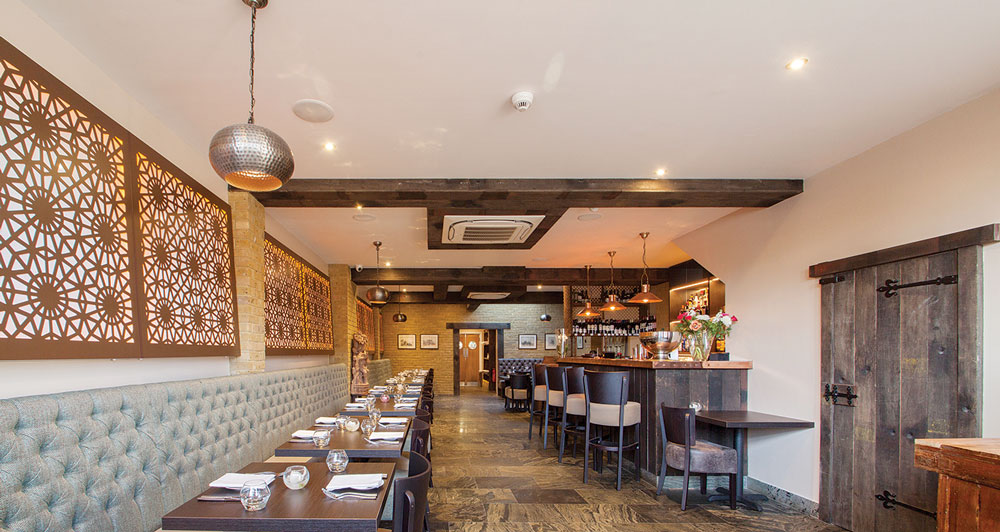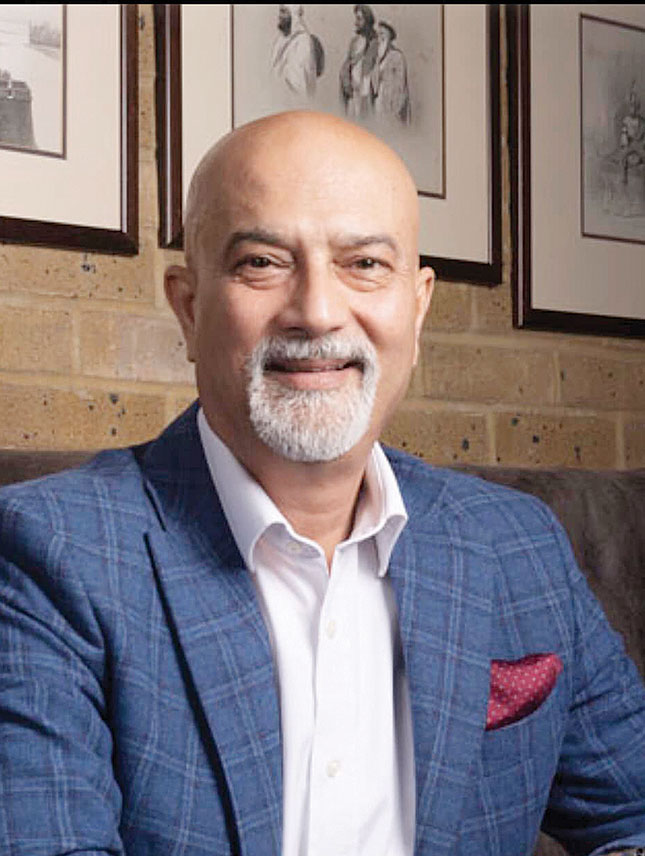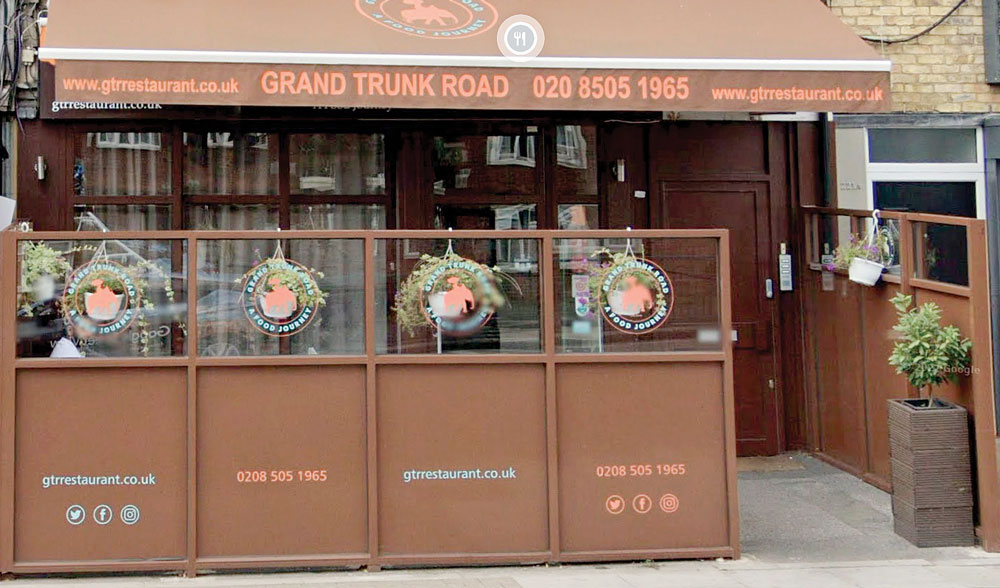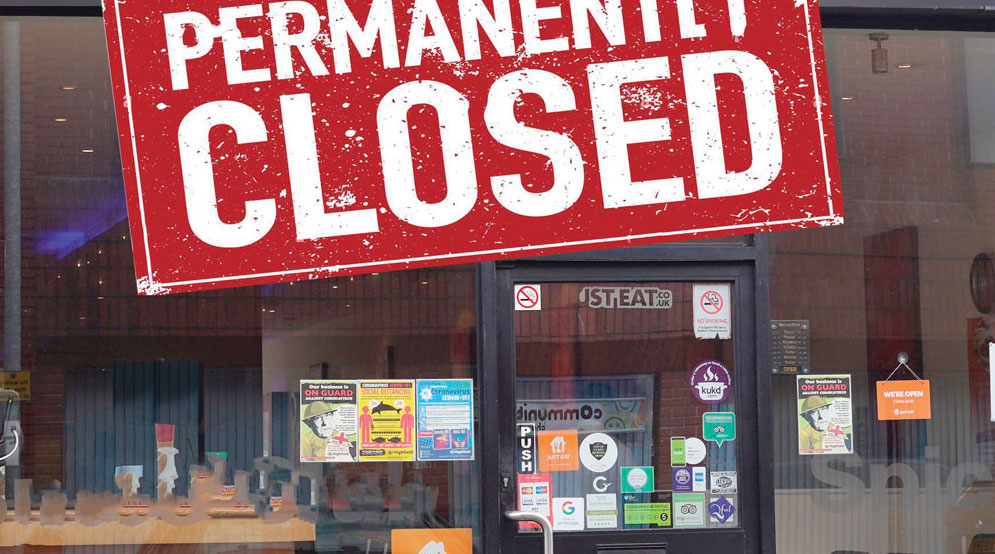Restaurant closures are at record highs, with many curry houses struggling
The iconic India Club in central London is closing its doors for the final time this month, after 70 years of business. The restaurant and bar, located in the Hotel Strand Continental has been a significant part of the southeast Asian community over the years. Opened by members of the India League – a British-based organisation that campaigned for India’s independence in the 1900s, over the years, it has served not only as a restaurant but as a meeting place for the Indian diaspora, where many would gather to talk to a friendly face, share stories or simply ask for advice.
The India Club’s demise – due to the building it is housed in being demolished, is sure to be mourned by many for years to come. More significantly, it is perhaps one of the biggest casualties of the growing number of Indian restaurants being forced to close across the UK. Just last month, East London’s Grand Trunk Road restaurant, featured in the Michelin Guide and won many awards, announced its closure after seven years of business. Owner Rajesh Suri told Curry Life that the decision was prompted by his desire to try something different but also said the costs involved in running the restaurant were exorbitant, with the business having stagnated over this year.

Whether it’s the threat of demolition, the cost of living crisis or the hike in prices on energy bills and ingredients, it’s clear that curry houses up and down the country are facing a battle for survival like never before. The answer to this crisis surely lies deeper than saving costs or warding off a demolition notice (The India Club had previously won a reprieve from demolition). As Suri told Curry Life, interest rates are not likely to reduce anytime soon – possibly not for another two to three years.

“The hospitality industry is going to find that this situation is going to last for another two or three years – it’s what I’m expecting purely because I have seen these ups and downs in the last 35 years I have spent in the hospitality industry in the UK,” he says. “Every time the interest rate goes up, it’s going to take time to bring it down.”
He believes those in the industry have to have some long-term plans in place, a combination of tightening their belts, increasing their personal input into the business or something else altogether.
“We have to decide whether we want to continue with our wonderful industry or find another way,” he said.
Reality check
It’s certainly a sobering thought for anyone involved in the curry house and the wider hospitality industry. Figures released in July from accountancy firm Price Bailey show that restaurants closed at their highest rate in a decade in the first three months of 2023. A total of 569 restaurant businesses filed for insolvency in the first quarter, equating to an average of 5.6 per day, bringing the total number of closures to 2,028 over the last 12 months.
This marks a 55% increase on 2021 figures, which saw 1,303 restaurants (an average of 3.1 per day) forced to close.The Hospitality Market Monitor from CGA by NIQ and AlixPartners meanwhile, released in May, showed that Britain has suffered a net decline of 4,593 licensed premises in the last year to March 2023. The drop is equivalent to 4.3% of the licensed sector since March 2022, and an average of 12.6 closures a day. However, it says net closures slowed to 756 venues in the first three months of this year—a quarter-on-quarter drop of 0.7%, and equivalent to 8.4 closures a day. There was a much steeper drop in restaurants (down 7.8% since March 2022) than food pubs (down 2.2%) and high street pubs (down 2.5%).

Tough times
Independent businesses have borne the brunt of closures with a 5.9% drop in numbers over the last 12 months. Looking at curry houses in particular, an article published in The Guardian in June said there are conflicting figures on exactly how many Indian restaurants there are in the UK but most of these suggest numbers have dropped from about 12,000 in 2011 to about 8,000 today.
The article highlighted how labour shortages have become a major issue in recent years, with the children and grandchildren of restaurateurs often declining to take over the family business, alongside the decline in unskilled labour post-Brexit.
Responding to the Hospitality Market Monitor figures, Kate Nicholls, chief executive of UKHospitality, said: “These figures clearly demonstrate the challenges faced by hospitality businesses. In particular, smaller independent businesses, who have borne the brunt of the ongoing challenges of soaring costs, workforce issues and more. Alongside the increased rate of business failure across the independent market, there has been an industry-wide freeze on investment and new openings due to the current crisis, providing a very constrained short-term outlook.”
Data from the Insolvency Service, released in July and reported in Sky News, also showed how restaurants and cafés across the UK are going insolvent at a rate not seen for more than a decade. According to its figures, 3,347 eateries have been unable to pay their debts in the past two years to March 2023. During the first three months of 2023, an average of six restaurants were affected every day.
Businesses are no longer viable

With such grim statistics, what lies ahead for the British curry industry? Ana Miah, who owned various restaurants in and around Cardiff under the Juboraj brand, said: “We’ve had to streamline our business due to our huge expenditure on energy, which has gone through the roof, meaning it is simply not viable to keep my restaurants open. I have offloaded some to other people and with others, I have told the landlord that I cannot continue trading.”
Miah explains that he had already planned to sell some of his restaurants before the Covid-19 pandemic, with the sales completed during lockdown. Following lockdown, he just about managed to keep his other restaurants up and running, but things did not get back to normal for quite some time. Just as the situation appeared to be improving, the businesses then faced rising energy prices. The restaurants that closed or were sold on include the Juboraj in Lakeside and in Cardiff Bay and the takeaway Grameen Juboraj.
“During the pandemic, VAT was temporarily reduced to 5% and that helped quite a bit but once that returned to the normal rate, it had a huge impact on the viability of the businesses,” says Miah.
The closures have come at a significant personal cost for Miah, and he says it was a difficult decision to make, particularly as the Juboraj restaurant brand is so well-known in Wales.
“It’s had a huge personal impact on me – I’ve been in this business for well over 40 years and have a reputation to protect,” he says. “It came down to a trade-off – reduce outgoings rather than keeping the restaurants open and take a hit – particularly as there are other partners involved in the businesses. It’s about making the best out of a very difficult situation.”
Miah says he is close to retirement, which also influenced his decision, but he hopes that members of his extended family will keep the name and the business going.
“I will try and encourage them and support them to keep the tradition going,” he says. “I’ve no doubt we will see many other closures in the UK – it’s not just about the curry sector but hospitality as a whole is suffering. This situation will continue unless we see some drastic measures taken to boost recovery and overcome this current crisis.”
Mounting losses
It’s a similar story for Jubar Ahmed, who was forced to close his takeaway Just Spice in Taunton earlier this year, after only six months in operation. Ahmed said: “Months after we opened, we were hit with a huge increase in prices – from ingredients to electricity, so we had no choice but to close down. We have three other restaurants that are just about surviving – it’s incredibly tough, our electricity and gas bills have more than tripled. We decided to close because of mounting losses and we would also have to pay staff wages, which didn’t make sense.”
Ahmed believes that it will be some time before the current economic situation improves to the point where the hospitality industry can start looking forward to the future. He has lost significant sums of money and says things will get tougher before they improve.
“Things are unlikely to get better anytime soon – it’s holiday season now so many restaurants in this area are busy with tourists and it might feel as if things are busy and getting back to normal,” he says. “But it is not like previous years as people are simply not spending as much. Small businesses like ours definitely need more support from the government.”





